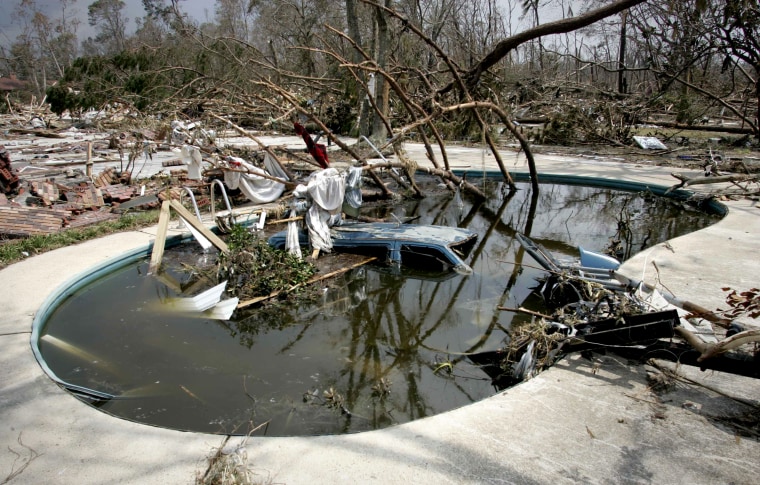Louisiana, struggling to rebuild from Hurricane Katrina, now faces a potential scourge of mosquitoes as insects hatch in storm-created breeding grounds, scientists said Monday.
The expected surge in the mosquito population this summer around New Orleans raises worries about the risk of an accompanying increase in cases of the mosquito-borne West Nile virus, public health officials said.
"The mosquitoes have just taken off," said Janet McAllister, an entomologist with the Centers for Disease Control and Prevention.
McAllister was one of several officials who spoke at a Detroit meeting of the American Mosquito Control Association, where a special session was devoted to the government response to hurricanes Katrina and Rita.
In New Orleans, officials are trying to combat an influx of salt-marsh mosquitoes in thousands of abandoned and damaged swimming pools in the city's backyards through an improvised program of "pool patrols," McAllister said.
The problem has been compounded by the relatively warm winter in New Orleans, said McAllister, a native of New Orleans who worked in the city's insect control program before joining the CDC.
North of New Orleans, downed trees are blocking drainage channels, and marsh plants churned up by the autumn hurricanes have created new breeding grounds for mosquitoes, said Chuck Palmisano, director of mosquito abatement in St. Tammany Parish.
"We still don't know what this is going to mean, but we believe it is going to increase breeding," said Palmisano.
Meanwhile, massive trailer parks set up for Katrina refugees pose new problems, said Randy Vaeth, a biologist who works for East Baton Rouge Parish.
Public health officials have no good way of notifying the residents of the trailer parks that they are planning to spray pesticides and to warn them to stay indoors, he said.
In addition, wastewater treatment plants set up to deal with the thousands of displaced residents are proving to be rich mosquito breeding grounds, he said.
McAllister said hastily organized U.S. Air Force flights to spray insecticide to control mosquitoes and to kill the "filth flies" breeding in New Orleans garbage heaps were a rare success amid the chaos that followed Katrina.
The first time a specially outfitted C-130 transport sprayed insecticide over the French Quarter in mid-September "the flies were literally raining out of the sky on us," she said.
Louisiana has a long history with mosquito-borne illnesses. New Orleans, which borders on marshes and brackish Lake Pontchartrain, was the site of the last yellow fever epidemic in the United States in 1905.
The first statewide effort to control the insects began in the mid-1950s when New Orleans residents complained about the health risk from ferocious mosquitoes in city neighborhoods.
